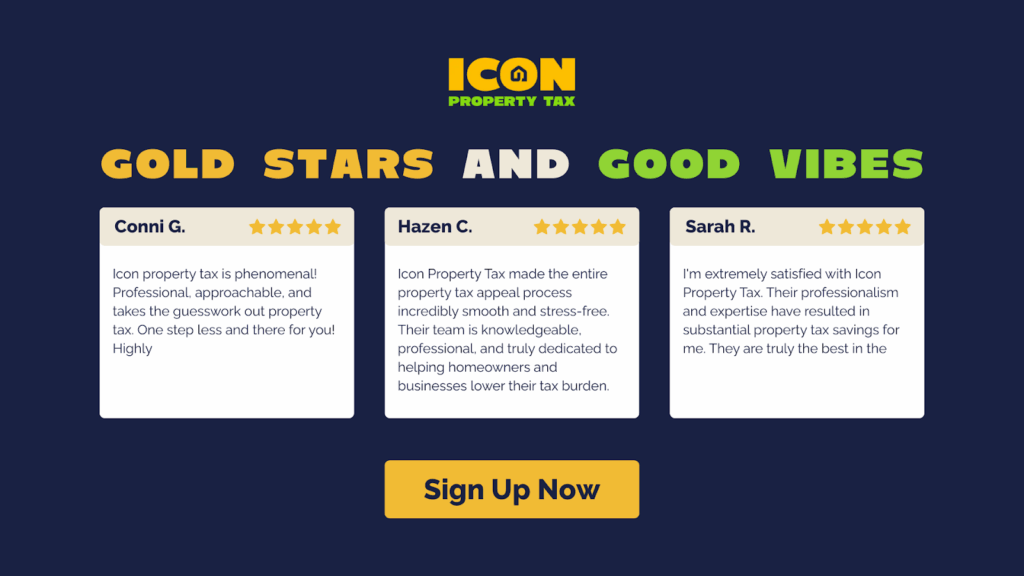Think You Might Be Overpaying In Property Taxes? A Tax Grievance Could Save You Big
September 1, 2025
Key Takeaways:
- Savings: Discover how filing a tax grievance can legally reduce your property tax bill if your home is over-assessed.
- Indicators: Learn how to identify signs that you’re overpaying—like incorrect home data or unfair comparisons to neighboring properties.
- Process: Explore the step-by-step process of filing a grievance, including DIY tips and when it makes sense to hire a professional.
Every year, millions of homeowners unknowingly overpay their property taxes. The reason? Inflated assessments that don’t reflect current market value, incorrect property data, or simply a lack of awareness that the bill can be challenged. Property taxes are not set in stone—yet many people continue to pay inflated amounts because they assume the process of contesting them is complex, risky, or only worthwhile for high-end properties.
With over $100 million in reductions secured and thousands of property owners served across Texas, Icon Property Tax is a trusted leader in aggressive, expert-driven property tax representation. Our deep market knowledge, proprietary valuation strategies, and commitment to maximizing savings have earned us a reputation as the go-to team for homeowners and investors looking to fight unfair tax assessments successfully.
That’s where a tax grievance comes in. It’s your legal right to dispute an inaccurate property assessment—and when done correctly, it can lead to real, recurring savings. Whether your home is modest or multi-million-dollar, understanding and leveraging the grievance process can help you keep more money in your pocket and ensure you’re taxed fairly.
In this piece, we’ll explain how a tax grievance works, how to know if you’re overpaying, and how you can take action, whether on your own or with professional help.
What Is A Tax Grievance?
A tax grievance is a formal complaint filed by a property owner who believes their property has been assessed at a value higher than it’s actually worth. Since property taxes are based on the assessed value of your home or land, an inflated assessment means you may be paying more than your fair share.
Filing a tax grievance is your way of saying, “I don’t agree with this valuation,” and asking your local tax assessor to reconsider. It’s not about arguing with the tax rate itself—just the value they’ve assigned to your property.
Most tax grievances focus on market value discrepancies, like:
- Recent comparable homes selling for less than your assessed value
- Incorrect property information used during the assessment (e.g., square footage, number of bathrooms)
- Declining neighborhood values
The key idea? If your property has been overvalued, a successful grievance could lower your taxes, sometimes significantly.

How Do You Know If You’re Overpaying In Property Taxes?
Many homeowners never question their property tax bill, assuming it must be accurate. But in reality, millions of properties across the U.S. are over-assessed, leading to higher tax bills than necessary. Here are a few signs you might be overpaying:
Your Property Taxes Are Higher Than Your Neighbors’
If your home is similar in size and style to nearby homes but your tax bill is significantly higher, that’s a red flag. It could mean your assessed value is too high compared to others in your area.
Recent Sales In Your Area Are Lower Than Your Assessed Value
Look at what similar homes in your neighborhood have sold for recently. If these prices are lower than your property’s assessed value, it’s worth questioning the accuracy of the assessment.
Errors On Your Property Record
Sometimes the county’s records contain mistakes, like an incorrect number of bedrooms, outdated square footage, or additions that don’t exist. These errors can lead to inflated values and unfair taxation.
Your Assessment Increased Dramatically In One Year
A steep jump in your assessed value could be justified by renovations or rising market prices, but not always. It’s worth investigating whether the increase is accurate or exaggerated.
Local Market Conditions Are Declining
If home prices in your area have dropped but your assessment hasn’t adjusted downward, you might be paying taxes based on outdated market data.
How The Tax Grievance Process Works
Filing a tax grievance might sound intimidating, but the process is more straightforward than most people think. It typically follows these general steps:
Review Your Assessment
Start by looking up your property’s assessed value through your local assessor’s office or website. Compare it to recent sales of similar properties in your area.
Gather Evidence
If you believe your assessment is too high, collect supporting documentation. This may include:
- Recent sales data of comparable properties (also called “comps”)
- Photos of your home and neighboring properties
- A professional appraisal (optional but powerful)
- Documentation of physical issues with the home (e.g., needed repairs)
File Your Grievance
Submit your formal grievance during your municipality’s designated grievance period. This usually happens once a year, and deadlines vary by state and county. You’ll typically need to:
- Fill out a form (online or paper)
- Attach your evidence
- Submit it to the correct office (such as a Board of Assessment Review)
Attend A Hearing (If Required)
Some areas may require or offer a hearing where you present your case. It’s often informal and gives you a chance to explain why you believe the assessment is inaccurate.
Await The Decision
After reviewing your case, the assessor or review board will issue a decision. If approved, your property’s assessed value—and therefore your tax bill—will be reduced.
Common Misconceptions About Tax Grievances
Several myths and misunderstandings discourage homeowners from filing a tax grievance, even when they could save hundreds or thousands of dollars. Let’s clear a few of them up:
Filing A Grievance Will Trigger A Home Inspection
Many people fear that challenging their assessment will invite the tax assessor to inspect their home, possibly resulting in a higher tax bill. In most cases, this simply isn’t true. A grievance is about challenging the valuation, not inviting scrutiny.
It’s Too Complicated To File
While the process does require some paperwork and research, it’s not as daunting as it seems. With clear instructions available from most local tax offices and many professionals available to help, filing can be surprisingly manageable.
Only Big Reductions Are Worth It
Even a modest reduction in assessed value can lead to ongoing annual savings. If your property is over-assessed by just a few percentage points, the savings can compound over time.
Your Property Value Will Drop
A successful grievance adjusts your property’s assessed value for tax purposes only. It doesn’t affect your home’s market value or resale potential.
You Can Only File If Your Home Lost Value
Even in a rising market, your home could still be over-assessed, especially if the assessor relied on outdated or incorrect data. A grievance is about accuracy, not just decline.
The Potential Savings From Filing A Grievance
One of the most compelling reasons to file a tax grievance is the potential for real, lasting savings. Over-assessed properties can cost owners thousands of dollars more than necessary, year after year.
How Much Can You Save?
The amount varies depending on how much your assessment is reduced and your local tax rate. Here’s a simple example:
- If your home is over-assessed by $50,000
- And your property tax rate is 2.5%
- You could save $1,250 annually
That’s not a one-time savings—it recurs every year until your property is reassessed again.
Compounding Benefits
The savings aren’t just about your next tax bill. Reducing your assessment can:
- Lower your monthly mortgage payment (if taxes are escrowed)
- Improve your cash flow
- Boost the long-term affordability of your home
No Savings, No Risk (In Many Cases)
Some tax grievance firms operate on a contingency basis. This means:
- You pay nothing unless they reduce your assessment
- If successful, they take a percentage of your first year’s savings
This setup makes filing accessible to homeowners who may not want to risk upfront costs.
Should You Hire A Professional Or Do It Yourself?
When it comes to filing a tax grievance, homeowners have two main options: go the DIY route or hire a professional. Each has its own pros and cons depending on your time, confidence, and familiarity with the process.

Doing It Yourself
Filing a grievance on your own can save money upfront and is a viable option for those comfortable with paperwork and research.
Pros:
- No fees or commissions to pay
- Full control over the process
- Resources are often available from local tax offices or online
Cons:
- Requires time to research comparable sales and complete forms
- It can be intimidating if you’re unfamiliar with legal or real estate terminology
- It may be less effective if you don’t present strong evidence
Hiring A Professional
Tax grievance firms, attorneys, or property tax consultants specialize in navigating the system efficiently.
Pros:
- Expertise in gathering data, preparing documentation, and arguing cases
- Higher success rate in some cases
- Often work on contingency—no win, no fee
Cons:
- They typically charge a percentage of your first year’s savings
- Less hands-on involvement if you want full control
Which Is Right For You?
If you’re detail-oriented and up for the challenge, DIY may be a good fit. But if you prefer convenience or want the best shot at maximizing your savings, hiring a professional can be well worth the cost.
When And How To File A Tax Grievance
Timing is everything when it comes to filing a tax grievance. Each jurisdiction has its own specific grievance period, and if you miss it, you’ll have to wait until the next year to try again.
When To File
Most counties and municipalities have a designated annual window for filing. For example:
- In New York, many counties hold the grievance period in May or June
- Deadlines vary by state and even by town or city
- Some areas allow only a few weeks to submit your grievance
To find your filing deadline, visit your local assessor’s office website or call them directly.
How To File
While the exact process may differ slightly depending on where you live, these are the general steps:
Obtain the Grievance Form: This might be called a Form RP-524 (in NY) or a similar application. You can typically download it from your assessor’s website.
Fill Out the Form: Include your property’s current assessed value, the value you believe is fair, and the reason for the grievance. Attach evidence such as:
- Recent sales of similar homes
- An appraisal
- Photos or records of property condition
Submit before the Deadline, and you may be able to file:
- In person
- By mail
- Online (in some counties)
Optional: Prepare for a Hearing
Some jurisdictions may schedule a grievance hearing where you can speak or submit additional documents. You don’t always have to attend, but it can strengthen your case.
Track The Results
Once submitted, you’ll receive a notice of the board’s decision. If your grievance is denied, you may have an opportunity to appeal the decision through a small claims or legal process, depending on local laws.

Final Thoughts
Property taxes are one of the biggest recurring expenses for homeowners, and yet many people pay more than they should without realizing it. A tax grievance is your legal right to challenge an assessment that may be inaccurate, unfair, or outdated.
By understanding the process, knowing what to look for, and either taking action yourself or hiring a professional, you can potentially unlock hundreds or even thousands of dollars in savings each year.
The bottom line? If something about your property tax bill doesn’t sit right, don’t ignore it. Investigate. Compare. Challenge. It’s a small investment of time that could lead to big, long-term financial relief.
Frequently Asked Questions About Tax Grievance And Property Tax Overpayment
What happens if I file a tax grievance and it’s denied?
If your grievance is denied, you typically have the option to appeal the decision. This might involve presenting your case to a small claims assessment review or a similar appeals board. The exact next steps vary by jurisdiction, but you won’t be penalized for filing or denied the chance to appeal.
Will filing a tax grievance affect my ability to sell my home?
No. A tax grievance does not appear on public listings or title records and has no impact on your property’s marketability. In fact, a successful grievance could make your property more appealing to potential buyers due to lower taxes.
Is there a limit to how often I can file a tax grievance?
Generally, you can file a tax grievance once per year during the designated filing period. If you miss it or your grievance is denied, you’ll have to wait until the following year to try again.
Do I need a property appraisal to file a grievance?
Not always. While an independent appraisal can strengthen your case, especially in contested situations, many successful grievances rely solely on sales data of comparable homes. Local rules may also determine whether an appraisal is required.
Can I grieve taxes on a rental property or investment property?
Yes, tax grievances can be filed on any real property, including rentals, vacation homes, or commercial buildings. The process is similar, though commercial assessments may require more complex evidence or valuation approaches.
Will my neighbors find out I filed a tax grievance?
Typically, no. The grievance process is not broadcast publicly, and your filing isn’t sent to your neighbors. It’s handled by the local tax authority and may be considered a public record, but it’s not widely distributed or disclosed.
Can back taxes be refunded if my grievance is successful?
Usually, a successful grievance only affects future tax bills. Retroactive refunds for prior years are rare and depend on local laws. Some municipalities allow refunds if you prove significant errors in the past, but this is not guaranteed.
What if my assessment seems fair, but my taxes are still high?
A grievance only challenges your property’s assessed value, not the tax rate. If the rate itself is high, there’s little a grievance can do. However, you might look into property tax exemptions or credits you may qualify for (e.g., STAR, veterans, seniors).
Is it better to file online or in person?
Both options are typically equal in legal weight. Filing online is often faster and more convenient, but in-person filing may offer more immediate confirmation and the chance to ask questions directly. Choose whichever suits your comfort level.
Do different states have different grievance processes?
Yes. Each state—and often each county or municipality—has its own process, deadlines, forms, and guidelines. What works in New York might be very different in Texas or California. Always check local assessor guidelines before proceeding.

